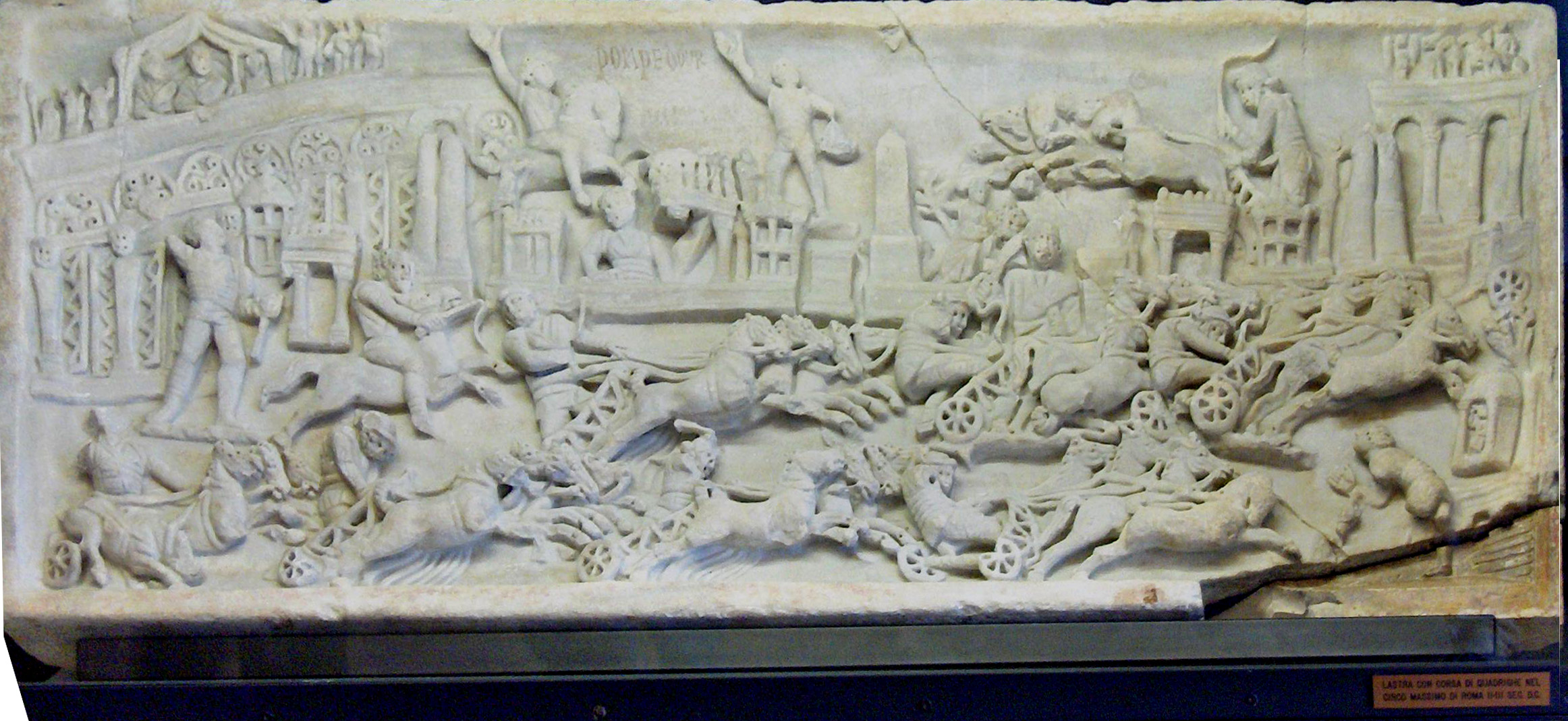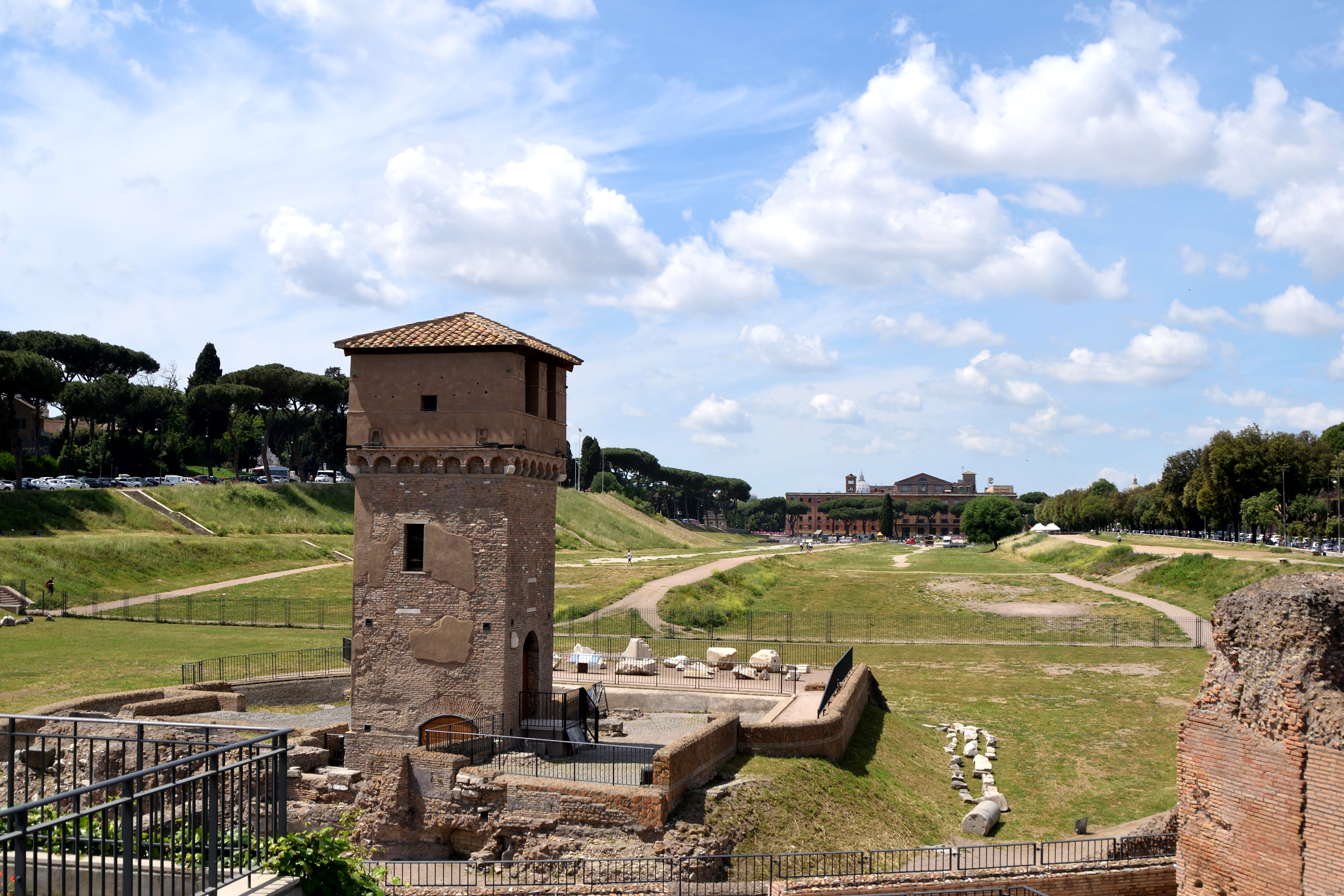|
Ludi Plebeii
The Plebeian Games (Latin ''Ludi Plebeii'') were an ancient Roman religious festival held November 4–17. The games ''(ludi)'' included both theatrical performances ''(ludi scaenici)'' and athletic competitions for the purpose of entertaining the common people of Rome. History The Plebeian Games may have been celebrated among the common people without an official place on the religious calendar until plebeians rose to positions of highest prominence; Cicero, at least, thought they were Rome's oldest ''ludi''. They are known to have been held each year from 220 onward, but may have been much older. It may be most accurate to say the ''Ludi Plebeii'' were first established as a public festival in 220 BC. Because the proceedings of the Plebeian Games strikingly resemble those of the ''Ludi Romani'' ("Roman Games"), T.P. Wiseman has suggested that they were created by the ''plebs'' as an assertion of their own identity, perhaps as early as the 5th or 4th century BC. Purpose The ' ... [...More Info...] [...Related Items...] OR: [Wikipedia] [Google] [Baidu] |
Ancient Rome
In modern historiography, ancient Rome refers to Roman civilisation from the founding of the city of Rome in the 8th century BC to the collapse of the Western Roman Empire in the 5th century AD. It encompasses the Roman Kingdom (753–509 BC), Roman Republic (509–27 BC) and Roman Empire (27 BC–476 AD) until the fall of the western empire. Ancient Rome began as an Italic settlement, traditionally dated to 753 BC, beside the River Tiber in the Italian Peninsula. The settlement grew into the city and polity of Rome, and came to control its neighbours through a combination of treaties and military strength. It eventually dominated the Italian Peninsula, assimilated the Greek culture of southern Italy ( Magna Grecia) and the Etruscan culture and acquired an Empire that took in much of Europe and the lands and peoples surrounding the Mediterranean Sea. It was among the largest empires in the ancient world, with an estimated 50 to 90 million inhabitants, roughly 20% of t ... [...More Info...] [...Related Items...] OR: [Wikipedia] [Google] [Baidu] |
Conflict Of The Orders
The Conflict of the Orders, sometimes referred to as the Struggle of the Orders, was a political struggle between the plebeians (commoners) and patricians (aristocrats) of the ancient Roman Republic lasting from 500 BC to 287 BC in which the plebeians sought political equality with the patricians. It played a major role in the development of the Constitution of the Roman Republic. Shortly after the founding of the Republic, this conflict led to a secession from Rome by Plebeians to the Sacred Mount at a time of war. The result of this first secession was the creation of the office of plebeian tribune, and with it the first acquisition of real power by the plebeians. At first, only patricians were allowed to stand for election to political office, but over time these laws were revoked, and eventually all offices were opened to the plebeians. Since most individuals who were elected to political office were given membership in the Roman Senate, this development helped to transform th ... [...More Info...] [...Related Items...] OR: [Wikipedia] [Google] [Baidu] |
Stichus
''Stichus'' is a comedic Latin play by the early Roman playwright Titus Maccius Plautus. Some scholars allege that this play was not, in fact, written by Plautus Plot In Athens, the two daughters of wealthy Antipho, Philumena and Pamphila, are married to the brothers Epignomus and Pamphilippus. Due to mismanagement of their property, the two husbands became merchants to make money, and by the start of the play they have been away for three years. As no news has been received about their husbands' whereabouts, the women are encouraged by their father to remarry, but they refuse. The boy Pinacium tells Philumena that her husband has returned. On their way home, the husbands rebuff the attempts of the '' parasitus'' Gelasimus to take advantage of them. After they arrive at Antipho's home, Antipho requests the gift of a female slave, after which they reconcile. The slave Stichus is granted some wine and a day off. He and his friend Sagarinus celebrate with their mistress, Step ... [...More Info...] [...Related Items...] OR: [Wikipedia] [Google] [Baidu] |
Plautus
Titus Maccius Plautus (; c. 254 – 184 BC), commonly known as Plautus, was a Roman playwright of the Old Latin period. His comedies are the earliest Latin literary works to have survived in their entirety. He wrote Palliata comoedia, the genre devised by the innovator of Latin literature, Livius Andronicus. The word Plautine refers to both Plautus's own works and works similar to or influenced by his. Biography Not much is known about Titus Maccius Plautus's early life. It is believed that he was born in Sarsina, a small town in Emilia Romagna in northern Italy, around 254 BC.''The Concise Oxford Companion to Classical Literature'' (1996) Ed. M.C. Howatson and Ian Chilvers, Oxford University Press, Oxford Reference Online According to Morris Marples, Plautus worked as a stage-carpenter or scene-shifter in his early years. It is from this work, perhaps, that his love of the theater originated. His acting talent was eventually discovered; and he adopted the names "Maccius" (a ... [...More Info...] [...Related Items...] OR: [Wikipedia] [Google] [Baidu] |
Pompa Circensis
In ancient Rome, the ''pompa circensis'' ("circus parade") was the procession that preceded the official games ''(ludi)'' held in the circus as part of religious festivals and other occasions. Description The most detailed description of the ''pompa circensis'' during the Republican era is given by Dionysius of Halicarnassus, based on eyewitness observation and the historian Fabius Pictor, who says he is describing the original ''Ludi Romani''; Fabius may, however, have been more influenced by what he saw in the ''pompa'' of the Saecular Games in 249 BC. The procession was led by boys of the nobility ''(nobiles)'' riding on horseback, followed by boys on foot who were future infantrymen. Next came the charioteers and athletes who would compete in the games. Troops of dancers followed to musical accompaniment performed on ''auloi'', a type of woodwind instrument, and the lyre. The dancers were divided into age classes, men, youths, and children. Wearing purple tunics, they wielde ... [...More Info...] [...Related Items...] OR: [Wikipedia] [Google] [Baidu] |
Valerius Maximus
Valerius Maximus () was a 1st-century Latin writer and author of a collection of historical anecdotes: ''Factorum ac dictorum memorabilium libri IX'' ("Nine books of memorable deeds and sayings", also known as ''De factis dictisque memorabilibus'' or ''Facta et dicta memorabilia''). He worked during the reign of Tiberius (14 AD to 37 AD). During the Middle Ages, Valerius Maximus was one of the most copied Latin prose authors, second only to Priscian. More than 600 medieval manuscripts of his books have survived as a result.Briscoe, ''Valerius Maximus'', p. 15. Biography Nothing is known of his life except that his family was poor and undistinguished, and that he owed everything to Sextus Pompeius (consul AD 14), proconsul of Asia, whom he accompanied to the East in 27. Pompeius was the center of a literary circle to which Ovid belonged; he was also an intimate friend of the most literary prince of the imperial family, Germanicus. Although he shared the same name as a prestigious ... [...More Info...] [...Related Items...] OR: [Wikipedia] [Google] [Baidu] |
Chariot Races
Chariot racing ( grc-gre, ἁρματοδρομία, harmatodromia, la, ludi circenses) was one of the most popular ancient Greek, Roman, and Byzantine sports. In Greece, chariot racing played an essential role in aristocratic funeral games from a very early time. With the institution of formal races and permanent racetracks, chariot racing was adopted by many Greek states and their religious festivals. Horses and chariots were very costly. Their ownership was a preserve of the wealthiest aristocrats, whose reputations and status benefitted from offering such extravagant, exciting displays. Their successes could be further broadcast and celebrated through commissioned odes and other poetry. In standard racing practise, each chariot held a single driver and was pulled by four horses, or sometimes two. Drivers and horses risked serious injury or death through collisions and crashes; this added to the excitement and interest for spectators. Most charioteers were slaves or contract ... [...More Info...] [...Related Items...] OR: [Wikipedia] [Google] [Baidu] |
Ludi Circenses
''Ludi'' (Latin plural) were public games held for the benefit and entertainment of the Roman people (''populus Romanus''). ''Ludi'' were held in conjunction with, or sometimes as the major feature of, Roman religious festivals, and were also presented as part of the cult of state. The earliest ''ludi'' were horse races in the circus (''ludi circenses''). Animal exhibitions with mock hunts (''venationes'') and theatrical performances (''ludi scaenici'') also became part of the festivals. Days on which ''ludi'' were held were public holidays, and no business could be conducted—"remarkably," it has been noted, "considering that in the Imperial era more than 135 days might be spent at these entertainments" during the year. Although their entertainment value may have overshadowed religious sentiment at any given moment, even in late antiquity the ''ludi'' were understood as part of the worship of the traditional gods, and the Church Fathers thus advised Christians not to par ... [...More Info...] [...Related Items...] OR: [Wikipedia] [Google] [Baidu] |
Epulum Jovis
In ancient Roman religion, the Epulum Jovis (also Epulum Iovis) was a sumptuous ritual feast offered to Jove on the Ides of September (September 13) and a smaller feast on the Ides of November (November 13). It was celebrated during the ''Ludi Romani'' ("Roman Games") and the ''Ludi Plebeii'' ("Plebeian Games"). The gods were formally invited, and attended in the form of statues. These were arranged on luxurious couches ''( pulvinaria)'' placed at the most honorable part of the table. Fine food was served, as if they were able to eat. The priests designated as ''epulones'', or masters of the feast, organized and carried out the ritual, and acted as "gastronomic proxies" in eating the food. See also *Lectisternium *Sellisternium *Religion in ancient Rome *Glossary of ancient Roman religion The vocabulary of ancient Roman religion was highly specialized. Its study affords important information about the religion, traditions and beliefs of the ancient Romans. This legacy is co ... [...More Info...] [...Related Items...] OR: [Wikipedia] [Google] [Baidu] |
Gaius Flaminius (consul 223 BC)
Gaius Flaminius (c. 275 BC217 BC) was a leading Roman politician in the third century BC. Twice consul, in 223 and 217, Flaminius is notable for the ''Lex Flaminia'', a land reform passed in 232, the construction of the Circus Flaminius in 221, and his death at the hands of Hannibal's army at the Battle of Lake Trasimene in 217, during the Second Punic War. Flaminius is celebrated by ancient sources as being a skilled orator and a man possessed of great piety, strength, and determination. He is, however, simultaneously criticised by ancient writers such as Cicero and Livy for his popular policies and disregard of Roman traditions, particularly during the terms of his tribunate and second consulship. Tribunate and the ''Lex Flaminia'', 232 BC Flaminius was elected as tribune of the plebs in 232 BC. Cicero writes that Flaminius was an accomplished orator before the people, a skill that likely helped him achieve the tribunate. During his term Flaminius proposed the ''Lex Flaminia ... [...More Info...] [...Related Items...] OR: [Wikipedia] [Google] [Baidu] |
Roman Censor
The censor (at any time, there were two) was a magistrate in ancient Rome who was responsible for maintaining the census, supervising public morality, and overseeing certain aspects of the government's finances. The power of the censor was absolute: no magistrate could oppose his decisions, and only another censor who succeeded him could cancel those decisions. The censor's regulation of public morality is the origin of the modern meaning of the words ''censor'' and ''censorship''. Early history of the magistracy The ''census'' was first instituted by Servius Tullius, sixth king of Rome, BC. After the abolition of the monarchy and the founding of the Republic in 509 BC, the consuls had responsibility for the census until 443 BC. In 442 BC, no consuls were elected, but tribunes with consular power were appointed instead. This was a move by the plebeians to try to attain higher magistracies: only patricians could be elected consuls, while some military tribunes were plebeians. ... [...More Info...] [...Related Items...] OR: [Wikipedia] [Google] [Baidu] |
Circus Maximus
The Circus Maximus (Latin for "largest circus"; Italian: ''Circo Massimo'') is an ancient Roman chariot-racing stadium and mass entertainment venue in Rome, Italy. In the valley between the Aventine and Palatine hills, it was the first and largest stadium in ancient Rome and its later Empire. It measured in length and in width and could accommodate over 150,000 spectators. In its fully developed form, it became the model for circuses throughout the Roman Empire. The site is now a public park. Events and uses The Circus was Rome's largest venue for ''ludi'', public games connected to Roman religious festivals. ''Ludi'' were sponsored by leading Romans or the Roman state for the benefit of the Roman people (''populus Romanus'') and gods. Most were held annually or at annual intervals on the Roman calendar. Others might be given to fulfil a religious vow, such as the games in celebration of a triumph. In Roman tradition, the earliest triumphal ''ludi'' at the Circus were ... [...More Info...] [...Related Items...] OR: [Wikipedia] [Google] [Baidu] |






